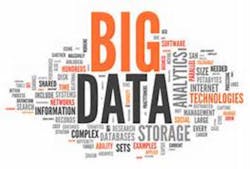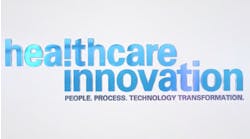A hot topic lately is big data, and the value it will bring to healthcare providers coping in a Population Health Management environment. I am reminded of the old adage “garbage in, garbage out” when it comes to managing big data for healthcare purposes, meaning the data you get out is only as good as the data going in. So, there are really two challenges: (1) making sure that useful data is captured in the proper form; and (2) having the tools to successfully extract data in a meaningful form.
In one of my consulting engagements, the facility is wrestling with this question, both operationally and organizationally. They are quite progressive in that they have already established an organizational entity for data mining, and they are beginning to acquire data from their various systems. On the other hand, they are struggling with how to organizationally structure around the ability to use the data being acquired. One approach would be a centralized organization of analytics specialists who would create analytical results for the various business entities and clinical services on a priority and need driven basis. The other approach would be to allow each service to establish their own analysts, who might be more responsive to the service’s needs.
It seems to me that before there is widespread use of big data in healthcare, organizations will need to create the infrastructure to deliver meaningful access. Sure, there will be companies that deliver analytical tools for mining the data, but as with most healthcare systems, there will be varying needs that will require resources to customize the tools to produce the required results. Similarly, it can be a challenge to properly extract the data from available systems. Emerging standards such as FHIR (Fast Healthcare Interoperability Resources - http://www.himss.org/faq-hl7-fhir-and-its-implications) will be helpful in further integrating disparate systems.
One interesting take on handling the complexities would be GE’s Health Cloud (http://www3.gehealthcare.com/en/products/categories/ge_health_cloud#tabs/tabEE97835ABA2B43EE923FEE1CB32778B6). GE has intimated that its cloud could be used to acquire and analyze healthcare data, provide customization services, and support it by means of a subscription model. This would potentially lower the investment and provide experienced customization analytic resources as opposed to organizations building their own.
Will organizations have to navigate the big data and analytics on their own? Not necessarily. Companies such as Prime Dimensions (www.primedimensions.com) can provide digital strategy and technology solutions for healthcare transformation. Prime Dimensions operationalizes Big Data analytics to help healthcare organizations (HCOs) transform, redesign and extend healthcare delivery, with emphasis on improving quality, achieving better outcomes and lowering costs. Their future-state architecture includes a unified analytics platform, virtualized data environment and API management tools that accelerate HCOs' journey for exceeding future standards of care, patient satisfaction and provider expectations and ensuring financially sustainable healthcare systems. With improved interoperability via FHIR, point-of-care clinical applications can be deployed and provide greater context for each patient encounter. Within their Enterprise Data Management practice area, Prime Dimensions provides a framework for establishing an Analytics Center of Excellence within organizations to define roles and responsibilities and coordinate activities and tasks among key stakeholders.
In the earliest days of PACS (Picture Archive and Communications System), prospective implementers relied on those with experience with the technology and implementation to help guide them to successful implementations. I suspect that the same will be true for those considering how to address big data and analytics. It will take innovation and creativity to address what can be construed as a formidable task.


